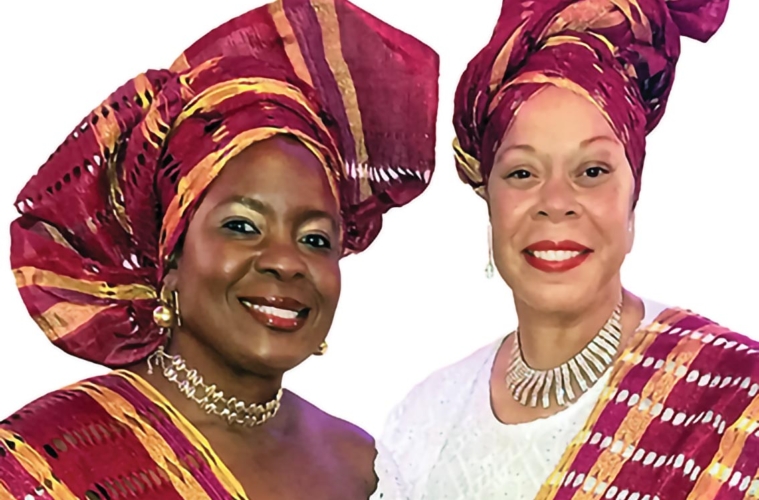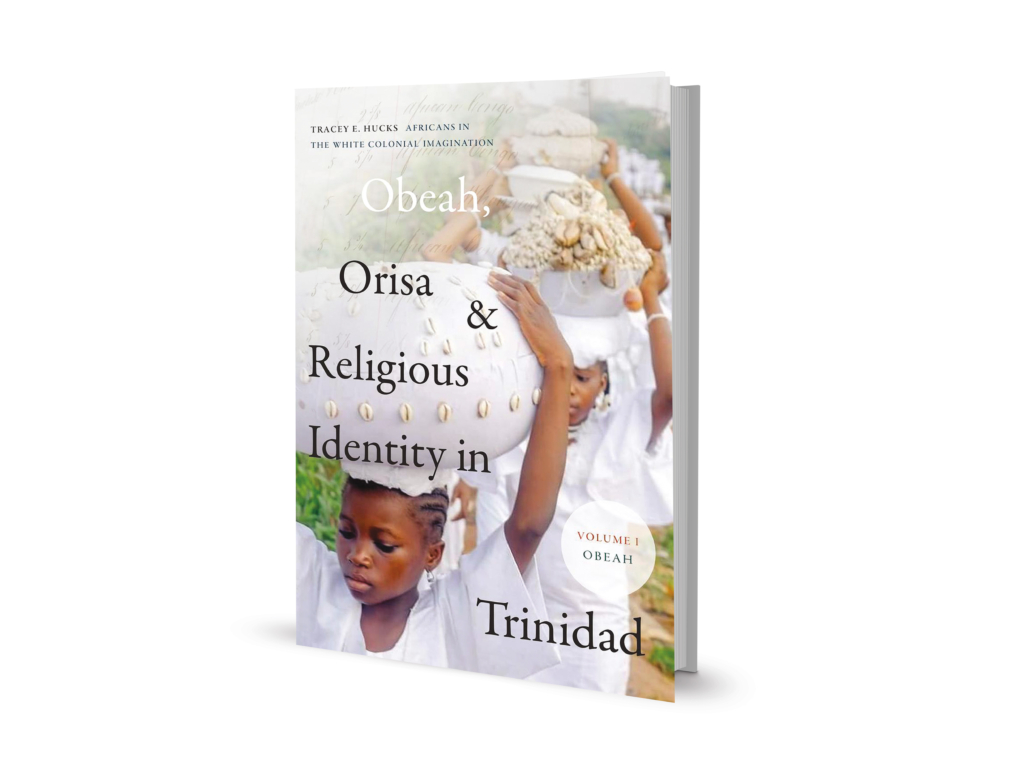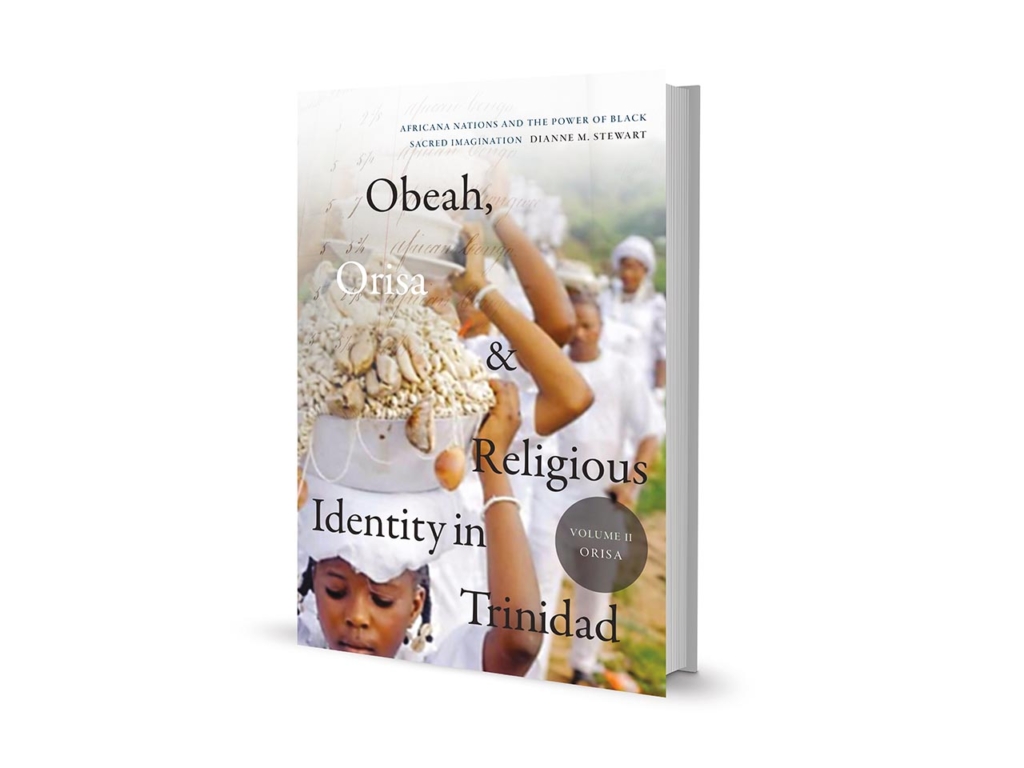It happened one night in 1994, at the historic Hotel Nacional de Cuba in Havana. After a long day attending an international conference about global Yoruba Orisa religion, Dianne Stewart ’90 and Tracey Hucks ’87, MA’90 chatted about the day’s lectures. That night, a dream began: They would, one day, combine their scholarly efforts to produce a volume about the lesser known story of the Yoruba Orisa tradition in Trinidad, especially its transformation during the 20th century.
Finally, Hucks and Stewart’s dream has become a reality — in fact, they’ve expanded it. The pair collaborated to produce two works: Obeah, Orisa and Religious Identity in Trinidad Volumes I and II (Duke University Press, 2022). In the texts — Volume I written by Hucks and Volume II by Stewart — the pair examine Obeah and Yoruba-Orisa religions, from colonialism to present-day. In Volume I, through archival research, Hucks describes how those who practiced the religions were demonized by colonizers, as well as colonialism’s lasting effect upon the region’s legislative and cultural history. In Volume II, Stewart addresses three main topics: 19th-century liberated African resettlement, the Black Power movement, and other civil rights efforts relating to Yoruba Orisa religious freedom in Trinidad. Together, the scholarly works paint a picture of the past, present, and predicted future of the religions.
The pair says their student experiences on the Hill inspired them to spend the past two and a half decades working on this project. “Our two volumes engaging colonial history, race, and religion are a reflection of our foundational work at Colgate studying religion, literature, women’s studies, and Africana studies,” Hucks says.
More Than Two Decades in the Making
A lot has changed for Hucks and Stewart during the process of writing their books: They’ve earned degrees, changed jobs, written books and numerous journal articles, and overall expanded their knowledge base around their research topic. “While the project unfolded, we developed new perspectives as a result of our wider scholarly activities,” Hucks says.
Their unique blend of education and experiences allowed them to write the books through a specific lens: “As scholars in the humanities — a trained historian of religion and a theologian — we treat interiority perhaps as much as we do the exterior worlds of the figures and personalities the reader will meet throughout each volume,” she adds.
Thanks, Professor
“Colgate is where I met my first professor of African and African diaspora religious studies, Dr. Josiah Young,” says Stewart. “Dr. Young exposed me, Tracey, and numerous Colgate students to the intersecting intellectual lineages of Black religious thought, Black arts, and Black letters. In so doing, Dr. Young taught us that the entire African diaspora and the African continent were tethered — spiritually, culturally, politically, and racially — to what we were studying about Black religious and theological traditions in the United States.” Hucks adds, “Dr. Manning Marable, founder of Colgate’s ALST program, was as impactful as Dr. Young.”
Studying Abroad
Stewart was among Colgate’s inaugural cohort of the Nigeria Study Group, while Hucks studied abroad in Kenya and Tanzania. “Cultivating knowledge of African studies through direct learning experiences on the continent (thanks to professors such as Carol Ann Lorenz and R. V. Smith, who organized these opportunities) contributed significantly to our scholarly path toward Africana Religious Studies,” Stewart says.
About the Authors
Stewart is the Samuel Candler Dobbs Professor of religion and African American studies at Emory University, where she specializes in African heritage religious cultures in the Caribbean and the Americas. She majored in English and African American studies at Colgate, and she earned her MDiv from Harvard and her PhD in systematic theology from Union Theological Seminary.
Hucks is the Suzanne Young Murray Professor at Harvard Radcliffe Institute
and Victor S. Thomas Professor of Africana religious studies at Harvard Divinity School. Previously, she served as provost and dean of the faculty at Colgate, where she also held the post of James A. Storing Professor of religion and Africana and Latin American studies. She earned her bachelor’s degree in Africana and Latin American studies and religion, and her master of arts in religion. She also received a second master’s degree and a PhD from Harvard.



